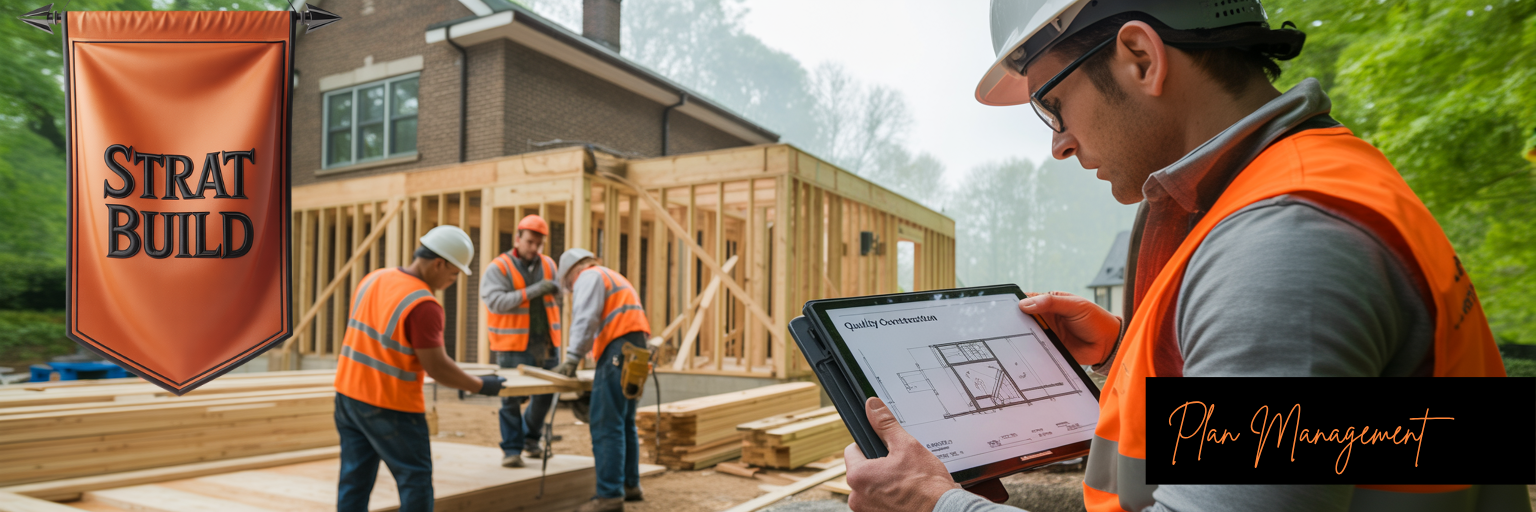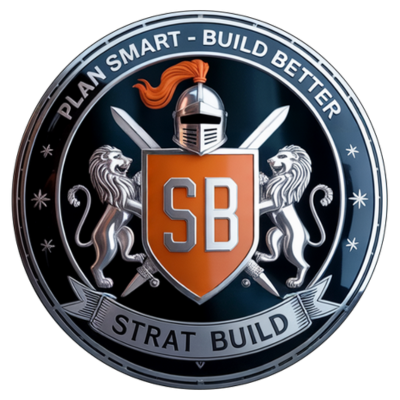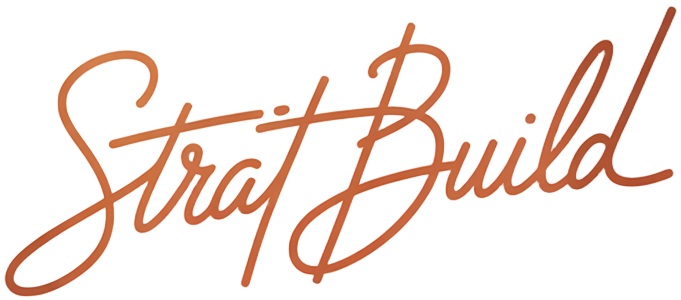
Managing a Construction Project Plan: A Comprehensive Guide for 2025
Executive Summary
Managing a construction project plan in 2025 requires a sophisticated blend of strategic planning, technological integration, stakeholder engagement, and adaptive risk management. As the construction industry faces evolving challenges—ranging from supply chain disruptions to the integration of AI and sustainability demands—project managers must adopt a systematic, technology-driven, and stakeholder-focused approach to ensure project success. This report synthesizes the latest industry insights, best practices, and software solutions to provide a detailed, actionable roadmap for effective construction project plan management.
1. Introduction
The construction industry is undergoing a rapid transformation, fueled by technological advancements, economic volatility, and increased demand for sustainable practices. Managing a construction project plan is no longer a linear process but a dynamic, iterative cycle that demands real-time data, cross-functional collaboration, and robust risk mitigation strategies. According to recent industry analyses, only 2.5% of companies complete their projects 100% successfully, underscoring the critical need for a well-structured management plan (Premier Construction Software, 2024).
2. Key Phases of Construction Project Plan Management
2.1. Defining Project Scope and Objectives
A clear and comprehensive project scope is the bedrock of any successful construction project. This phase involves:
- Identifying Stakeholders: Early engagement with all stakeholders—including owners, architects, engineers, contractors, and suppliers—ensures alignment and reduces the risk of scope changes and misaligned expectations.
- Establishing Objectives: Define measurable goals, deliverables, and success criteria. Use a Work Breakdown Structure (WBS) to break down the project into manageable tasks (Asana, 2025).
- Documenting Inclusions and Exclusions: A well-defined scope prevents litigation, manages expectations, and provides a reference for change management (Premier Construction Software, 2024).
2.2. Developing a Comprehensive Project Schedule
Effective scheduling is critical for timely project delivery. Key steps include:
- Task Sequencing and Dependencies: Use Gantt charts to visualize task dependencies and milestones (ProjectManager, 2025).
- Resource Allocation: Assign resources efficiently to avoid bottlenecks and maximize productivity.
- Real-Time Adjustments: Continuously update the schedule to reflect actual progress and adapt to unforeseen changes (GanttPRO, 2025).
2.3. Establishing a Robust Budget and Cost Control System
Budget overruns remain a top challenge in construction. Effective cost management involves:
- Detailed Cost Estimation: Account for direct and indirect costs, contingencies, and inflation.
- Real-Time Cost Tracking: Use integrated software to monitor expenses and compare them against the budget (SoftwareConnect, 2025).
- Value Engineering: Implement cost-saving techniques such as bulk purchasing and design optimization (Risk Publishing, 2024).
2.4. Creating a Risk Management Strategy
Construction projects are inherently risky. A proactive risk management plan should:
- Identify and Assess Risks: Conduct comprehensive risk assessments, including safety, financial, and environmental risks.
- Develop Mitigation Plans: Assign responsibilities for risk response and establish contingency plans.
- Monitor and Adapt: Use predictive analytics and real-time data to adjust risk strategies as the project evolves (Switch2SCM, 2025).
2.5. Designing an Effective Communication Plan
Transparent communication is essential for coordination and stakeholder satisfaction. Best practices include:
- Defining Communication Channels: Establish regular meetings, digital dashboards, and clear reporting lines.
- Document Management: Centralize documentation for easy access to plans, permits, and contracts (The Digital Project Manager, 2025).
- Feedback Loops: Incorporate stakeholder feedback to refine plans and processes.
2.6. Implementing Quality Control Measures
Maintaining high quality standards reduces rework and enhances client satisfaction. Key actions:
- Quality Assurance Protocols: Set clear quality benchmarks and inspection schedules.
- Continuous Monitoring: Use digital tools for real-time quality tracking and compliance auditing (Rhumbix, 2025).
- Documentation: Record all inspections, tests, and corrective actions for accountability.
3. Leveraging Technology in Construction Project Management
3.1. Project Management Software
Modern construction management relies heavily on digital solutions. Leading platforms include:
| SOFTWARE | KEY FEATURES | BEST FOR |
| Procore | Full Gantt, cost tracking, document management | Large, complex projects |
| Buildertrend | Budgeting, scheduling, client communications | Residential and small commercial |
| Contractor Foreman | GPS tracking, mobile app, resource management | Field-heavy projects |
| Asana | Task management, WBS, real-time collaboration | General project organization |
| ProjectManager | Gantt charts, timesheets, live dashboards | Real-time monitoring and reporting |
(The Digital Project Manager, 2025; SoftwareConnect, 2025)
3.2. Emerging Technologies
- AI & Machine Learning: Used for predictive analytics in risk assessment and cost forecasting (Switch2SCM, 2025).
- IoT & Wearables: Enable real-time site monitoring and safety compliance.
- Cloud-Based Collaboration: Facilitates remote access and instant data sharing across teams.
4. Best Practices for Construction Project Plan Management
4.1. Assemble the Right Team
Success hinges on a skilled, cohesive team. Define roles and responsibilities clearly, and foster an environment of transparency and trust (GanttPRO, 2025).
4.2. Continuous Planning and Adaptation
A construction project plan is a living document. Regularly review and update the plan to reflect site realities, stakeholder feedback, and market changes (ProjectManager, 2025).
4.3. Stakeholder Engagement
Early and ongoing stakeholder engagement reduces the likelihood of costly scope changes and builds trust (Rhumbix, 2025).
4.4. Emphasize Safety and Compliance
Implement robust safety protocols, conduct regular audits, and use digital tools to track compliance (Rhumbix, 2025).
4.5. Monitor Market Trends
Stay informed about material costs, labor availability, and regulatory changes to anticipate and mitigate external risks (Quickbase, 2024).
5. Common Challenges and Solutions
| CHALLENGE | SOLUTION |
| Budget Overruns | Real-time cost tracking, value engineering, contingency planning |
| Project Delays | Detailed scheduling, resource optimization, adaptive planning |
| Communication Gaps | Centralized platforms, regular updates, clear documentation |
| Quality Issues | Strict QA/QC protocols, digital inspection tools |
| Safety Incidents | Strict QA/QC protocols, digital inspection tools |
| Stakeholder Misalignment | Early engagement, transparent reporting, feedback incorporation |
(Switch2SCM, 2025; Premier Construction Software, 2024)
6. Future Trends in Construction Project Management
- Sustainability: Green building materials and eco-friendly planning are increasingly prioritized (Switch2SCM, 2025).
- Data-Driven Decision Making: Advanced analytics and custom reporting tools provide deeper project insights (The Digital Project Manager, 2025).
- Mobile and Remote Management: Mobile apps and cloud-based platforms enable on-site and remote coordination (GanttPRO, 2025).
7. Conclusion and Opinion
Based on the latest industry research and best practices, it is evident that successful management of a construction project plan in 2025 hinges on the integration of advanced technology, proactive risk management, and continuous stakeholder engagement. The shift towards digital platforms and data-driven processes is not optional but essential for maintaining competitiveness and ensuring project success. Project managers who embrace these strategies will not only mitigate traditional challenges—such as budget overruns and delays—but also position their organizations for sustainable growth in a rapidly evolving industry.
In my professional opinion, the most significant differentiator for construction project success in 2025 is the ability to adapt plans dynamically using real-time data and collaborative digital tools. The convergence of AI, IoT, and cloud-based management platforms is transforming the industry, enabling unprecedented levels of efficiency, transparency, and quality. Firms that invest in these capabilities and foster a culture of continuous improvement will consistently outperform their peers.
References
- Premier Construction Software. (2024). How to Create a Successful Construction Management Plan: A Step-by-Step Guide. Premier Construction Software. https://premiercs.com/blog/how-to-create-a-successful-construction-management-plan-a-step-by-step-guide
- Risk Publishing. (2024). How To Manage A Construction Project Step-by-Step Pdf. Risk Publishing. https://riskpublishing.com/manage-a-construction-project-step-by-step-pdf/
- Switch2SCM. (2025). The Ultimate Guide to Construction Project Management: Best Practices for 2025. My Framer Site. https://www.switch2scm.com/articles/construction-project-management-guide-2025
- Rhumbix. (2025). 10 Expert Tips for Construction Project Optimization in 2025. Rhumbix. https://www.rhumbix.com/blog/10-expert-tips-for-construction-project-optimization-in-2025
- The Digital Project Manager. (2025). Top Construction Project Management Software In 2025. The Digital Project Manager. https://thedigitalprojectmanager.com/tools/best-construction-project-management-software/
- SoftwareConnect. (2025). Best Construction Management Software: 2025 Reviews. SoftwareConnect. https://softwareconnect.com/roundups/best-construction-management-software/
- ProjectManager. (2025). How to Make a Construction Plan: Construction Planning Basics. ProjectManager. https://www.projectmanager.com/guides/construction-plan
- GanttPRO. (2025). How to Manage a Construction Project Step by Step. GanttPRO. https://blog.ganttpro.com/en/how-to-manage-construction-project-step-by-step/
- Asana. (2025). The 6 Phases of Construction Project Management (CPM) [2025]. Asana. https://asana.com/resources/construction-project-management
- Quickbase. (2024). What’s Ahead for Construction in 2025: Expert Perspectives. Quickbase. https://www.quickbase.com/blog/whats-ahead-for-construction-in-2025-expert-perspectives
This report is current as of June 8, 2025, and reflects the most relevant and reliable industry sources available.

Strat Build Consulting
Management Team
The management team of Strat Build Consulting exemplify professionalism and extensive experience in the construction project management industry. With decades of hands-on expertise across all phases of construction—from strategic planning and budgeting to risk management and project delivery—they have a proven track record of successfully leading complex, high-value projects.

